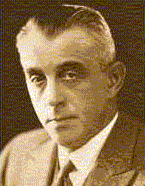Loser's Guide to Life
It's never to late to say one has been wrong about a thing, but the tricky part is the timing. Andrew Sullivan (via Thers at Eschaton) seizes his opportunity. He sees four mistakes that he made in supporting the war in Iraq:
“Historical Narcissism” - Left and Right business. Thought opposing war no longer hip.
“Narrow Moralism” - Saddam Hussein was a bad dictator, badder than many. An all-around bad hat.
“Unconservatism” - I don't really understand this term. He explains: “I heard and read about ancient Sunni and Shiite divisions, knew of the awful time the British had in running Iraq but had never properly absorbed the lesson.” I think it's fair to characterise this as: Didn't know much about Iraq; didn't care or think it important.
“Misreading Bush” - ...
This is the most interesting mistake, and its position suggests that it's the culmination of his misdemeanour, or its origin.
First of all, notice that all these apologiae are called “What I Got Wrong”, and so on, not “Why I Am an Idiot and You Should Never Listen to Me”. All these pieces in Slate propose that the pundits just failed to get their ducks in a row. “If I had know about X, of course, then....” That's demonstrable cant, because no single point in there is decisive, just as no single argument in favour of war could stand on its own; and as multiple insufficent arguments can't be aggregated into a single good one, so a list of concessions about various points fails to answer the question: why did you publicly argue for several years in favour of an act which you knew, or should have known, to be illegal and immoral? The only meaning of these pieces is really an admission that the scope of the political failure can no longer be denied. Sullivan's piece is one more example of the non-apology apology. He's not even saying that he's sorry the war has been a disaster; he's only saying that he's sorry to have supported something so disastrous.
“It was a fatal misjudgment of Bush's sense of morality.” What led him to make any judgment at all of Bush's “sense” of morality? How would you know something like that, unless Bush had written books or articles about it? Surely you could only judge of his morality from his words and deeds. So, at that time, what had impressed Sullivan about him? In this case, Sullivan uses the phrase to avoid saying that he merely liked Bush as a statesman and approved of his policies. He has to do that, because nothing about Bush has changed since then, except the value of supporting him.
“I certainly never believed that a war I supported for the sake of freedom would actually use as its central weapon the deepest antithesis of freedom - the destruction of human autonomy and dignity and will that is torture.” What steaming piffle. First, what does it mean to say, “a war I supported”? That's a junk qualification, and he must know that. Second, how can any adult believe that war does not entail unimaginable suffering and cruelty? Is torture the deal-breaker? Even assuming that it could be somehow avoided in fighting insurgents?
These last paragraph are quite interesting. In them Sulivan deftly turns his own ruined innocence into a denunciation of his former hero's crimes against America. “I know our enemy is much worse,” he says, “... [some more stuff] .... But what was done to America - and the meaning of America - was unforgivable.” This seems to mean that harming the brand with which he has associated himself is the worst thing that could happen.
You could say a lot more about this nonsense, but it's mostly just nonsense. Ultimately, it's all about Sullivan.
Labels: Bilge
